What Is The Importance Of Your Pool Filter?
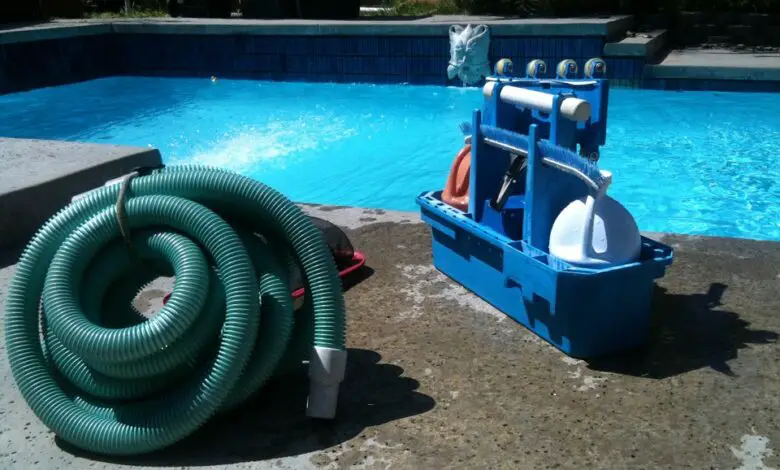
Swimming pools are a popular household feature, providing a convenient space for exercise and relaxation. Yet, the upkeep of a pool requires a keen understanding of its various components, amongst which the pool filter holds prime importance.
Role of a Pool Filter
The primary role of a swimming pool filter is to diligently maintain water clarity and impeccable hygiene. It achieves this by efficiently removing various impurities, including dirt, leaves, grass, and even minuscule particles that have the potential to cloud the water and foster the growth of harmful bacteria. By meticulously capturing and eliminating these contaminants, the filter ensures that the water remains crystal clear, inviting, and safe for swimmers to enjoy.
Types of Filters
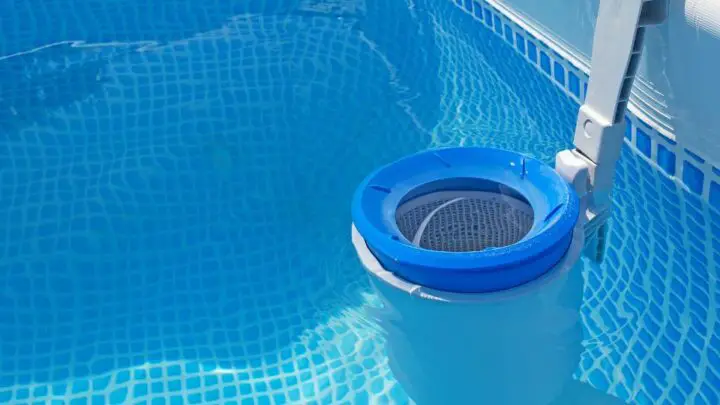
There are three main types of pool filters: sand, cartridge, and diatomaceous earth (DE). Each offers unique advantages and drawbacks, with the choice often depending on the pool’s size, usage, and the owner’s maintenance preferences.
Sand Filters
These are a popular choice for pool owners, thanks to their simplicity, affordability, and effective filtration capabilities. They operate by pushing pool water through a carefully graded bed of pool filter sand, which acts as a natural barrier. As the water flows through the sand bed, it undergoes a thorough filtration process, capturing and retaining debris, contaminants, and impurities. This meticulous filtration ensures that your pool water remains sparkling clean and clear, providing a safe and enjoyable swimming pools melbourne experience for you and your loved ones.
Cartridge Filters
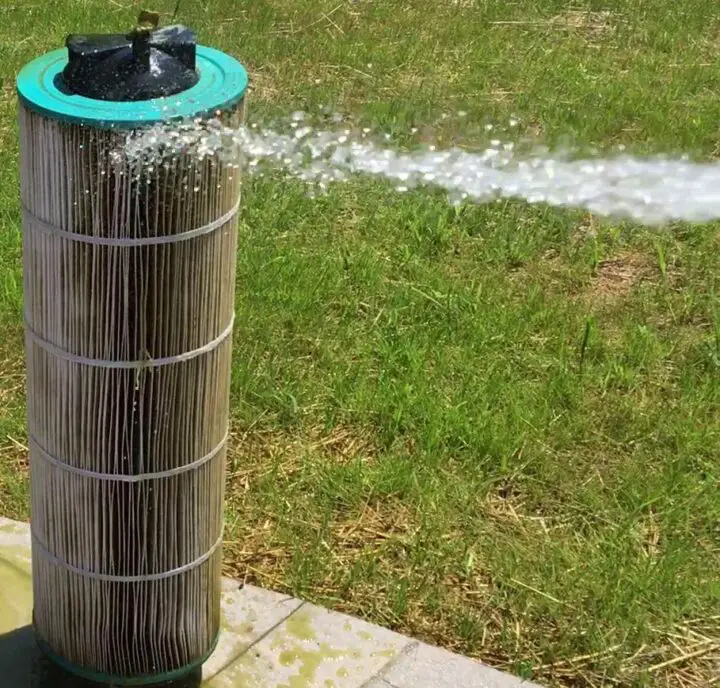
Cartridge filters offer a significantly larger filtration area in comparison to sand filters. This expanded surface area allows for more efficient filtration, resulting in fewer pump cycles required and ultimately leading to significant energy savings. Additionally, the cleaning process is incredibly simple, only requiring the removal and rinsing of the cartridge. With their superior filtration capabilities and easy maintenance, cartridge filters are an excellent choice for ensuring optimal pool or spa water quality.
Diatomaceous Earth Filters
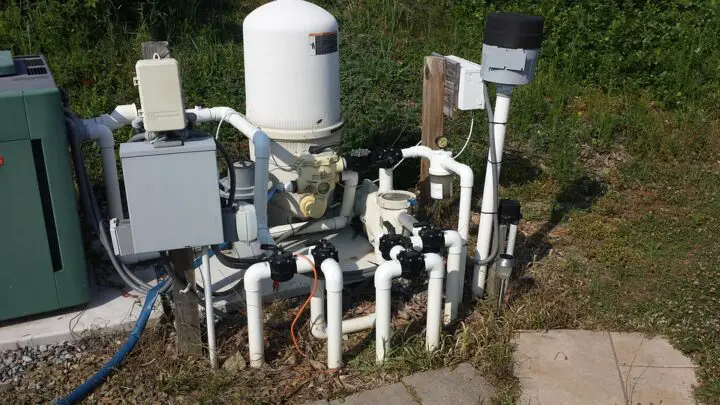
DE (Diatomaceous Earth) filters are renowned for their exceptional filtration capabilities, effectively eliminating particles as minuscule as 5 microns. Although they provide the highest level of filtration, it’s important to note that they do require more frequent maintenance and come at a relatively higher cost compared to sand and cartridge ones. Nevertheless, their superior filtration performance makes them a preferred choice for those seeking unmatched cleanliness in their filtration systems.
Importance of Regular Maintenance
Regular maintenance of your pool filter is crucial for its optimum performance. A clean and well-maintained filter will not only perform efficiently but also save energy and extend its lifespan, ensuring long-lasting enjoyment of a crystal-clear pool. Neglecting cleaning can lead to pressure build-up, poor water circulation, and ultimately, a green and unhealthy pool that may require costly treatments and repairs. By prioritising regular filter maintenance, you can proactively prevent these issues and maintain a pristine pool environment for your enjoyment and relaxation.
Common Problems
While pool filters are typically robust and reliable, like any other piece of equipment, they can sometimes encounter problems. Here are a few common issues:
Clogs
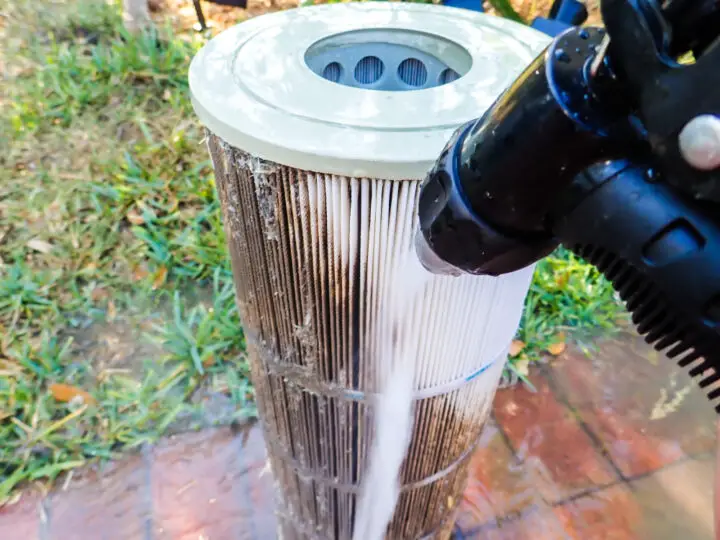
Clogs are one of the most common issues with pool filters. A clog can occur when debris, such as leaves, grass or dirt, collect in the filter over time. This can reduce the water flow through the filter, leading to a decrease in its effectiveness. Regularly checking and cleaning your filter can help to prevent this issue.
Leaks
Leaks can occur in the filter system due to faults in the O-rings, seals or gaskets. You can usually identify a leak by a drop in water level or wet spots around the system. If your filter is leaking, it’s essential to address the issue promptly to prevent water loss and potential damage to the surrounding area.
High Pressure
If the pressure gauge on your filter is reading higher than normal, this could indicate a number of issues, such as a clog in the return line, a dirty filter, or the pump impeller being blocked. High pressure should be addressed immediately to prevent damage to the system.
Damaged Filter Media
The filter media, whether it’s sand, a cartridge, or diatomaceous earth, can become damaged or worn over time. This can result in decreased filtration efficiency. If you notice that your pool water isn’t as clean as usual, it might be time to replace the media.
Each of these issues can impact the efficiency and longevity of your pool filter, but with regular maintenance and prompt problem-solving, you can ensure that your pool filter continues to function effectively, keeping your pool water crystal clear and safe for swimming.
Replacing Your Filter
Although a well-maintained filter has a good lifespan, there comes a point when it requires replacement. Understanding when and how to replace your pool filter is essential to ensure optimal water quality and the long-term health of your pool.
Deteriorating water quality despite regular cleaning, persistently high pressure readings, and visible wear and tear on your filter are all indications that it may be time to consider a replacement.
The process of replacing your filter varies slightly depending on the type of filter. However, it generally involves shutting off the pool pump, removing the old one, installing the new one, and restarting the pump. Please remember that it’s crucial to choose a replacement model that is suitable for your pool size and type to ensure efficient filtration.
Always remember, your pool’s health is directly tied to the condition of your filter. Hence timely replacement is a small investment for the longevity of your pool and the safety of the swimmers. Regular maintenance alongside timely replacements will ensure that your pool remains a clean, safe, and inviting oasis for all to enjoy.
Conclusion
In essence, your filter is the heart of your pool’s circulation system. It ensures your swimming pool water is clean, clear, and inviting. Understanding its importance and ensuring its proper maintenance is key to enjoying a safe and enjoyable swimming experience.

